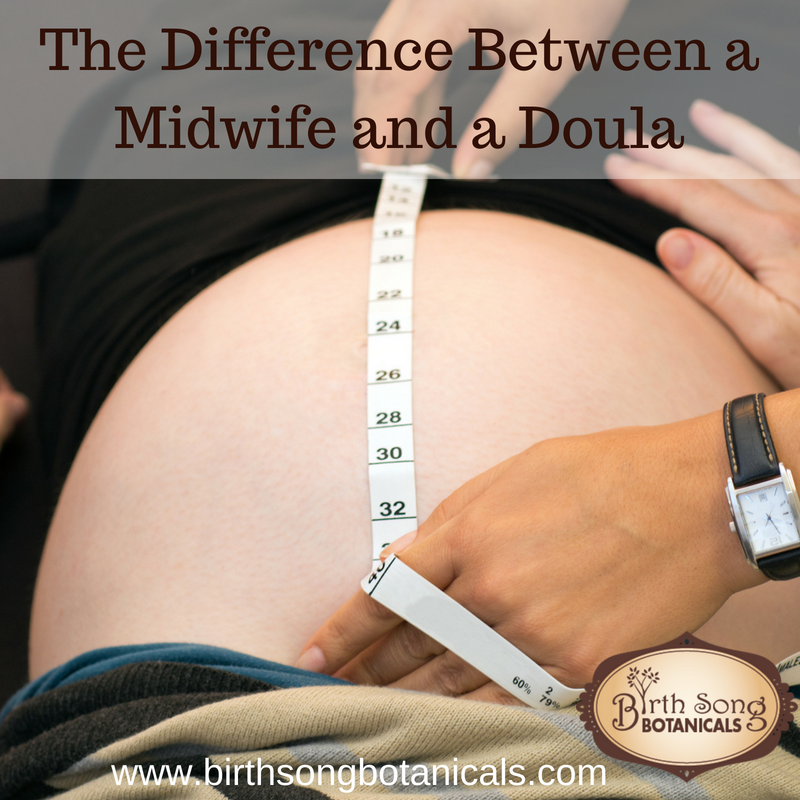Know the Difference Between a Midwife vs Doula

You may have heard that a doula is a huge help when delivering your baby. This is completely true, and there are even different kinds of doulas to assist you in the birth of your baby. You may also be considering a midwife for your delivery and care, which is a wonderful choice for low-risk women. However, do you know the difference between midwives and doulas? Midwives and doulas often have very similar philosophies of care, but the care they give is very different.
What is a Doula?
There are several types of doulas. Doulas provide emotional, physical, and informational support throughout your pregnancy, labor and delivery, and after your baby is born. However, they do not provide any direct physical care, such as routine prenatal care, or clinical care during your labor and delivery. Oftentimes, a doula will meet with you a few times during your pregnancy. They can suggest books to read, childbirth and parenting classes, help you to write your birth plan, and make a plan for your postpartum care.
During your labor and delivery, a doula will be there to provide physical and emotional support as you have your baby. She may provide massage, suggest laboring positions, and make sure you are eating and drinking. She can provide relief for your partner so that they can go use the restroom or get a bite to eat. She provides an experienced presence of knowledge and support - someone who can encourage you, provide information, and help you through the tough moments. A doulas job is to support you in the kind of birth that you want to have - whether it is a home birth, all-natural hospital or birth center birth, medicated vaginal birth, or planned c-section. Her job is to make sure that you get the care you want.
A doula will often stay after the birth for a while, helping you and your partner to get settled with the new baby and assisting in any other way that is needed. Often she will provide at least one postpartum follow-up appointment, and sometimes more. It is important to note that doulas are not trained to provide any direct physical care or to make recommendations about physical care (such as checking blood pressure, listening to the baby's heartbeat, or checking for dilation), but they can point you in the direction of resources so that you can make the most informed decision that you can.
There is no national or state certification for doulas, although many do choose to receive training and certification through different doula organizations. Do your research and find an organization that aligns with the care you would like to receive.

What is a Midwife?
Just as there are different kinds of doulas, there are different kinds of midwives. There are midwives who work out of hospitals, birth centers, and who have home birth practices. Each state licenses midwives differently, so if you would like to have a midwife as your care provider, it’s good to investigate the licensure requirements and scope of practice for the state that you live in. In general, midwives provide a more focused, women-led approach to care. I have provided you with a list of questions to ask your potential midwife.
In Arkansas, where I was licensed, midwives provide complete care throughout the prenatal period, during the labor and delivery, and complete postpartum care up to six weeks. In Arkansas, there is some risk assessment testing that must be done by a different care provider, but other than that, your midwife sees you for everything.
The prenatal experience with a midwife is unique. Each appointment is scheduled for between thirty minutes and an hour (depending on the midwife and their care setting), so you have a lot of time to really get to know each other. Giving birth is an incredibly intimate experience, and midwives believe that you should trust and feel supported by all the people at your birth. Your care is personalized and respectful of your preferences.
Your midwife is your care-provider, but she is also your advocate, supporter, coach, and often becomes your friend. A midwife is trained to provide excellent care, so that you stay healthy throughout your pregnancy. She has vast knowledge about what is normal in childbirth. She is a breastfeeding expert. She is also trained to respond in the event of an emergency, and if you do have to transfer out of her care either during your prenatal period, or during your actual birth, she will continue to provide support.

Midwives and doulas can both be important members of your birth team and can provide complimentary care that works together wonderfully. Choosing a midwife as your primary care provider is becoming more of a mainstream choice, although the majority of babies are still delivered in hospitals by OB-GYN physicians. However, more and more women are realizing that midwives provide the kind of care they are looking for. Doulas can provide the support that you may not even realize that you needed, and can be especially helpful if you are wanting to have a natural birth in a hospital setting.
Bottom line
I sincerely hope this post brings clarity as you choose your birth team!
Hugs,
Maria
🌿
🌿Want more?!? Check these out!🌿
- How To Prioritize Pregnancy Nutrition
- Pregnancy Sleep Survival Guide
- 3 Keys to a Healthy Pregnancy
- 3 Benefits of Herbal Pregnancy Tea to Help Prepare You for Birth
- Finding Relief from Pregnancy Insomnia
- The Ultimate Natural Pregnancy Guide
- Coping with Pregnancy Pain and Discomfort
- How to Have a Fit Pregnancy and Be Healthy
- Digestive Issues in Pregnancy
- Natural Morning Sickness Remedies
- The Long History of All-Natural Pregnancy Care
- Pregnancy Heart Word Podcast Session
- How Nettle Can Prevent Postpartum Hemorrhage
- 15 Ways to Heal After A Miscarriage
- The Difference Between a Doula and a Midwife
- Different Kinds of Doulas for Birth and Postpartum
- Hiring A Home birth Midwife Starts With An Effective Consultation
- 50 questions to ask your Midwife, OB, and Doula
- Home Birth Supplies List
- Why Home Birth is Safer Than The Hospital- For Natural Birth
- Birth Plan Template For Home Birth- Have An Empowering Birth At Home
- Cultivating Heart-Centered Decision-Making in Pregnancy and Parenting: A Guide to the Full-Body-Yes Feeling!
- 10 Ways to Plan Your Blessing Way Ceremony
- How to Induce Labor Naturally and Safely
- Cesarean Sections: Risks, Prevention, and Herbs for Recovery
- Include Your Partner And Speak the Love Languages of Birth
- Hospital Bag Checklist
- Four Healthy Habits to Start on Your Baby’s First Day
- Self Care Must Haves for Labor
- What I Wish I Knew About Breastfeeding Before Baby Was Born
- Children at Birth- Should you have your kids with you when you give birth?
- Oriana's Beautiful Home Birth Story
- How to Plan or Prevent Pregnancy
- Overcoming Mom Guilt When Having Another Baby
- What to Expect When Going Overdue
- Breastfeeding While Pregnant
- Journey into Motherhood
- 3 Pervasive Problems Pregnant & Postpartum Women Experience
- Natural Remedies for Bacterial Vaginosis BV
Remember to:
Like our Birth Song Botanicals Facebook Page
Follow Birth Song Botanicals Co. on Instagram
Read our Birth Song Botanicals Blog
Watch Birth Song Botanicals on Youtube
Listen to Birth Song Botanicals on SoundCloud
Be inspired by Birth Song Botanicals on Pinterest









